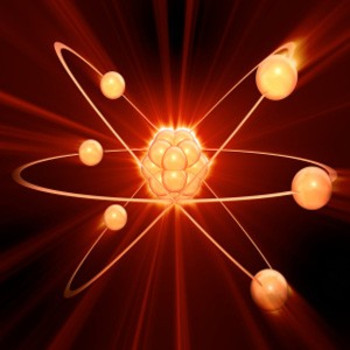How does radiation cause mutation?
1 Answer
Aug 19, 2016
Radiation can transfer energy to molecules such as DNA that causes bonds to break.
Explanation:
Radiation can be seen as a package of energy. This can be a particle (such as
In any case, radiation loses energy when it interacts with molecules in the cell. Mutation can be caused when radiation has enough energy to free an electron from an atom. Then it is called ionizing radiation. In contrast to e.g. microwaves and light which is also radiation, but with less energy.
When an electron is released from a molecule, bonds can break. Radiation can cause mutations in two different ways:
- Direct effect : radiation breaks bonds in DNA, this breaks the strands and mutation can occur when it is not properly repaired.
- Indirect effect : radiation causes other molecules to lose an electron; these molecules (reactive intermediates) can then interact with DNA to cause mutation.
Whether radiation causes mutations is a matter of chance:
- when a lot of energy is released on a small distance (
#alpha# particles), the density of damage is usually higher and more difficult to repair = high chance on mutations . - when radiation releases energy on a larger distance (
#gamma# rays), there is less damage to one molecule, the cell is usually able to repair it correctly = lower chance on mutations

